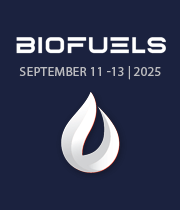Feedstock Development
Any renewable, organic resource that can be used directly as a fuel or converted to another type of fuel or energy product is referred to as a feedstock. The biorefinery system relies heavily on feedstock. A good/ideal feedstock for biorefinery should be non-food for humans/animals and deliver a greater product yield with a large market. The Feedstock Technologies initiative explores science-based strategies and technologies to lower the cost, enhance the quality, and increase the quantity of carbon-based feedstocks that are sustainable, renewable, and reusable. Each R&D area is made up of initiatives that help increase the efficiency and consistency of feedstocks for biofuels, bioproducts, and bioenergy conversion. Germplasm selection, molecular breeding, and genetic modification of appropriate feedstock for biofuel production are all part of bioenergy feedstock development.
- Harvest and Collection
- Preprocessing and Quality Improvement
- Resource Mobilization
- Storage
- Supply Chain Analysis
- Supply System Integration
- Transport and Handling

Susan Newman
Integrated Lipid Biofuels, United States
Magnus Stahl
Karlstad University, Sweden
David Galan Madruga
Carlos III Health Institute, Spain
Tirath Raj
University of Illinois Urbana Chaimpaign, United States
Jorge Antonio Hilbert
Energy and Environmental Consulting Services, Argentina
Simon Gonzalez-Martanez
Universidad Nacional Autonoma de Mexico, Mexico



Title : Revolutionizing bioplastics with yeast cell factories
Susan Newman, Integrated Lipid Biofuels, United States
Title : Quality variation in market biofuels and the effect on tailpipe emissions
Nick Molden, Emissions Analytics, United Kingdom
Title : Combustion performances of advanced cooking stoves using woody and herbaceous pellets as fuel
Magnus Stahl, Karlstad University, Sweden
Title : Ultra modern patented technology to convert agriwaste/MSW/ slaughter house effluent/lake waste/high cod distillery spent wash to 99% pure renewable hythane (hydrogen+methane)
Atul Saxena, Growdiesel Ventures Limited, India
Title : Green hydrogen: Driving sustainable aviation's future
Sanjeev Gajjela, Tomato Sustainables LTD, United Kingdom
Title : Energy transition and neo-industrialization in Brazil - Windows of opportunities
Suzana Borschiver, Federal University of Rio de Janeiro, UFRJ, Brazil